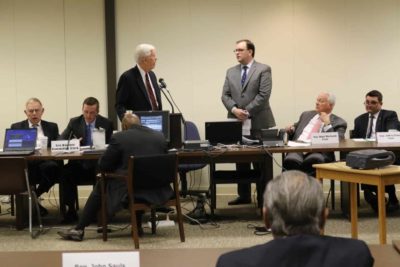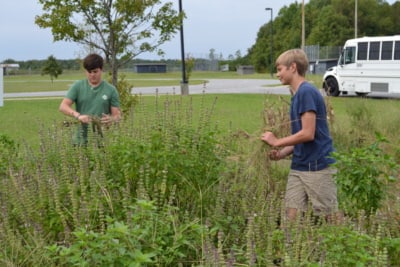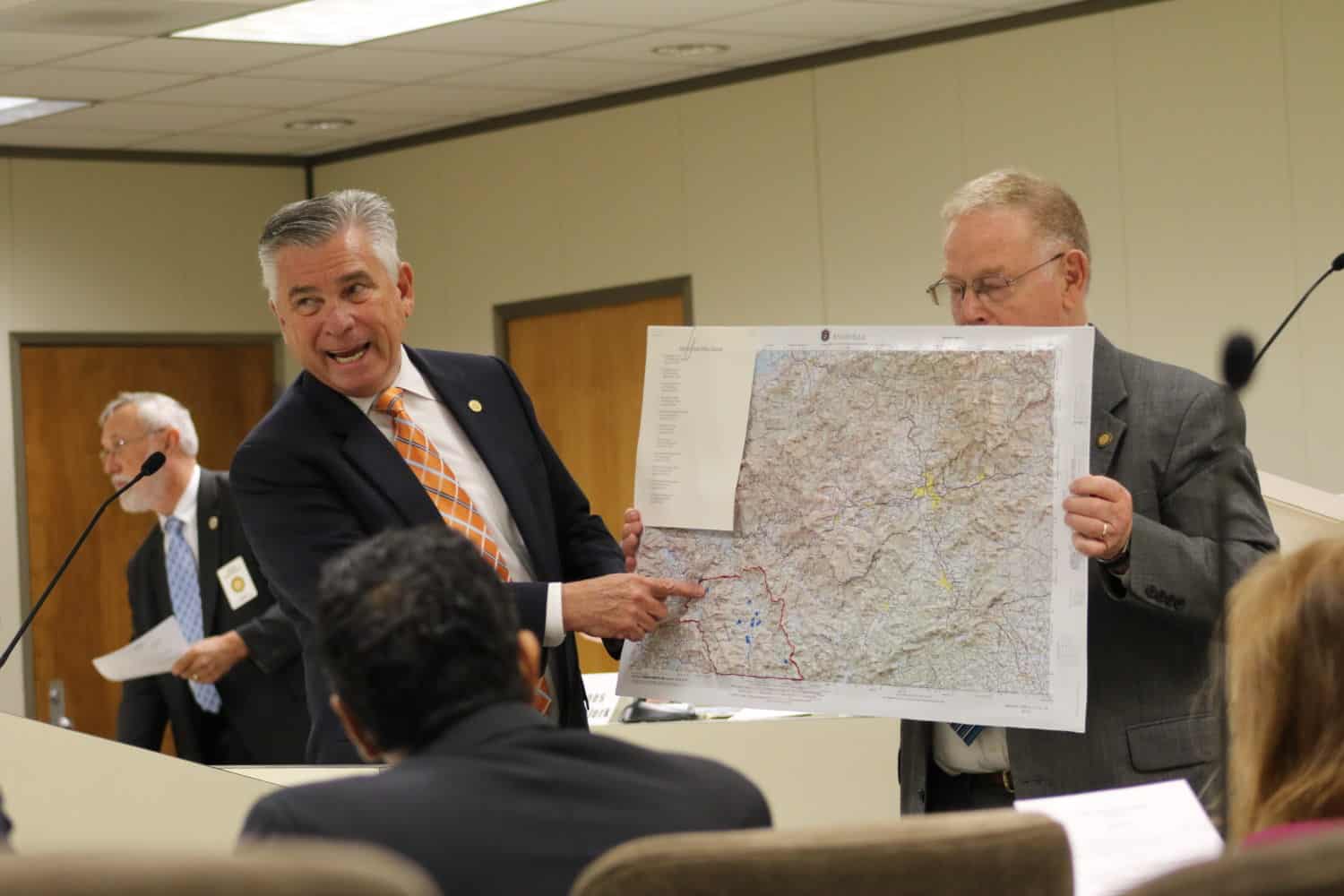The Senate education committee discussed legislation that would grant extra classroom teachers to two K-12 schools in Macon County to accommodate their geographic isolation.
Sen. Jim Davis, a Republican who represents seven western North Carolina counties, including Macon, explained to members that it is normal for a class to only have eight or nine students at Highlands School or Nantahala School. But, Davis said, because of distance and weather conditions, the separate schools are needed to serve those students.
“To consolidate these schools would not be feasible,” Davis said. “So I’m requesting the opportunity to fund these schools at a different rate.”
Senate Bill 15 would make sure each grade has a classroom teacher, no matter the number of students in the class. Davis said the per-student expense for the K-12 schools in his county is about $2,000 more than the expense for schools in the county seat, Franklin. The funding piece — $1.5 million annually — is no longer a part of the bill. Davis said it is being added to the overall budget instead.
The third traditional K-12 public school is in Ocracoke on an island off the coast. That school received similar treatment, Davis said.
“And I’m just asking for the same consideration for the two that are in Macon County,” he said.
Sen. Gladys Robinson, D-Guilford, asked if such geographically-isolated schools are offering the same quality of education as others in the district or across the state.
Davis assured Robinson that these schools are staffed with highly dedicated teachers and graduates college-bound students.
“We don’t have any problem with the quality of education there,” Davis said. “The parents and students really take ownership of that.”
The committee will vote on whether or not to give the legislation a favorable report at their next meeting.
The committee gave two other pieces of legislation favorable reports that make changes to the governance of apprenticeship and laboratory school programs.
Senate Bill 597 transfers an apprenticeship program from the Department of Commerce to the NC Community Colleges system’s office and names it ApprenticeshipNC. The program offers training in a specific industry or trade along with classroom instruction.
Sen. Chad Barefoot, R-Franklin, a primary bill sponsor, said there are currently two programs that offer very similar opportunities and activities for participants. Bringing them under one entity, he said, would work better.
“This bill will ensure that North Carolina’s workforce talent pipeline is efficient, organized, and producing the skilled workers that our state will need to remain economically competitive,” Barefoot said.
Barefoot said he has seen a lack of awareness about the opportunity in students and businesses across the state.
“Even as we have gone out and tried to incentivize participation, we still need more engagement, Barefoot said. “And we need businesses to know that youth apprenticeship tuition waiver exists, and that our community colleges are partners in this.”
Sen. Tamara Barringer, R-Wake, said she also sees challenges around getting the information to high school students.
Barefoot said the community college system is connected in the right circles to get the word out.
“What’s great about our community college system is that it’s embedded in the community. It’s embedded in our schools through our career coaches, and this offers the opportunity to leverage the state’s existing infrastructural resources to promote this program,” he said.
Jimmie Williamson, NC Community Colleges system’s president, told the committee that he supports the move, saying that the community college system and the apprenticeship program are “intrinsically married.” In his previous role as the community colleges’ president in South Carolina, the system was approaching 20,000 apprentices when he left. North Carolina’s program has about 5,000 participants.
“I think we can take this program to the next level and to the next step,” Williamson said. “I think we’re positioned to make that happen and to really begin to bring a resource that this state has been underserved with … to the forefront.”
Barefoot also introduced a bill that would make changes to the laboratory school model which was passed last year and creates partnerships between local school districts and UNC-system universities to turn around low-performing schools.
Barefoot said he has worked with university representatives to strengthen the model. Senate Bill 461 would transfer governance of the laboratory schools from the board of trustees of a specific institution to the Board of Governors’ Subcommittee on Laboratory Schools.
Chancellors of each university would operate the laboratory schools by submitting a proposal to the subcommittee.
The bill would also allow districts with less than 25 percent low-performing schools to participate in the model. The program, Barefoot said, would still serve students who did not meet expected growth in the prior school year.
“What this waiver is designed to do is create that flexibility for programs that are in urban centers who may not be in a low-performing LEA to be able to reach out to a certain amount of those students,” Barefoot said.
Sen. Rick Horner, R-Johnston, said he was concerned that this change completely alters the purpose of the program. Horner was the one committee member who voted against a favorable report on the bill.
“It’s going from a program that was originally designed to be in high-need school districts … to now you can just simply have ‘not meeting growth’ as a criteria for one of these schools,” Horner said. “I think that totally changes the mission.”
Sen. Michael Lee, R-New Hanover said he does not think the UNC system is going to start taking over more schools than are helpful.
“I don’t think you’re going to see the UNC system running rampant, taking over schools,” Lee said. “I think this is more of, being a lab school concept is essentially that, to find better ways to do things in certain types of school environments.”
Recommended reading




